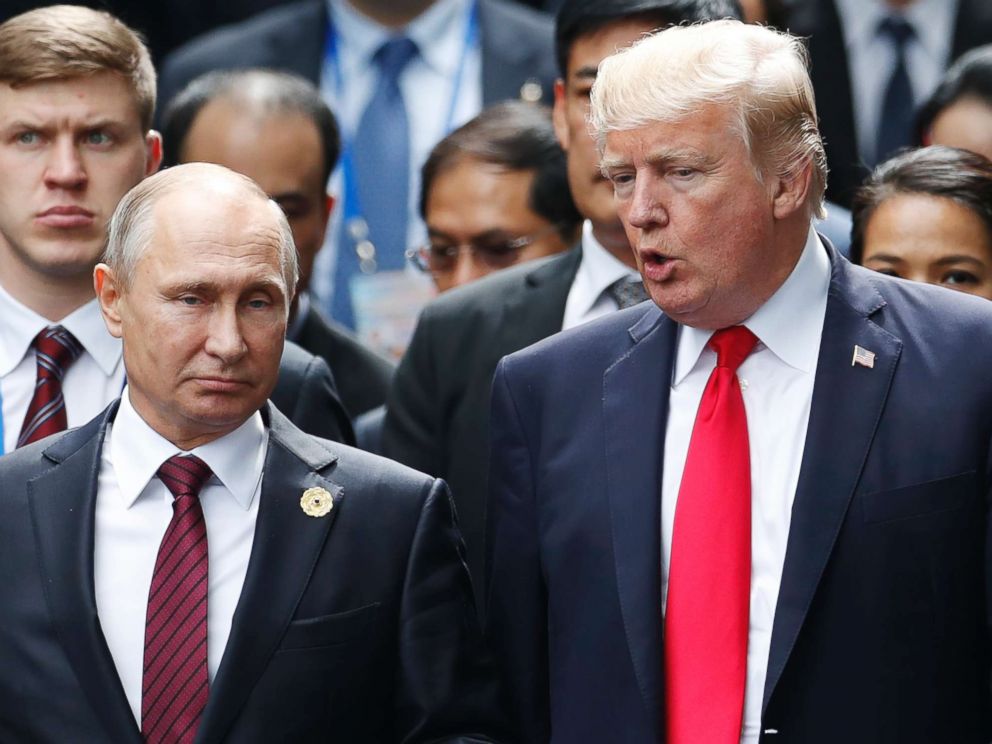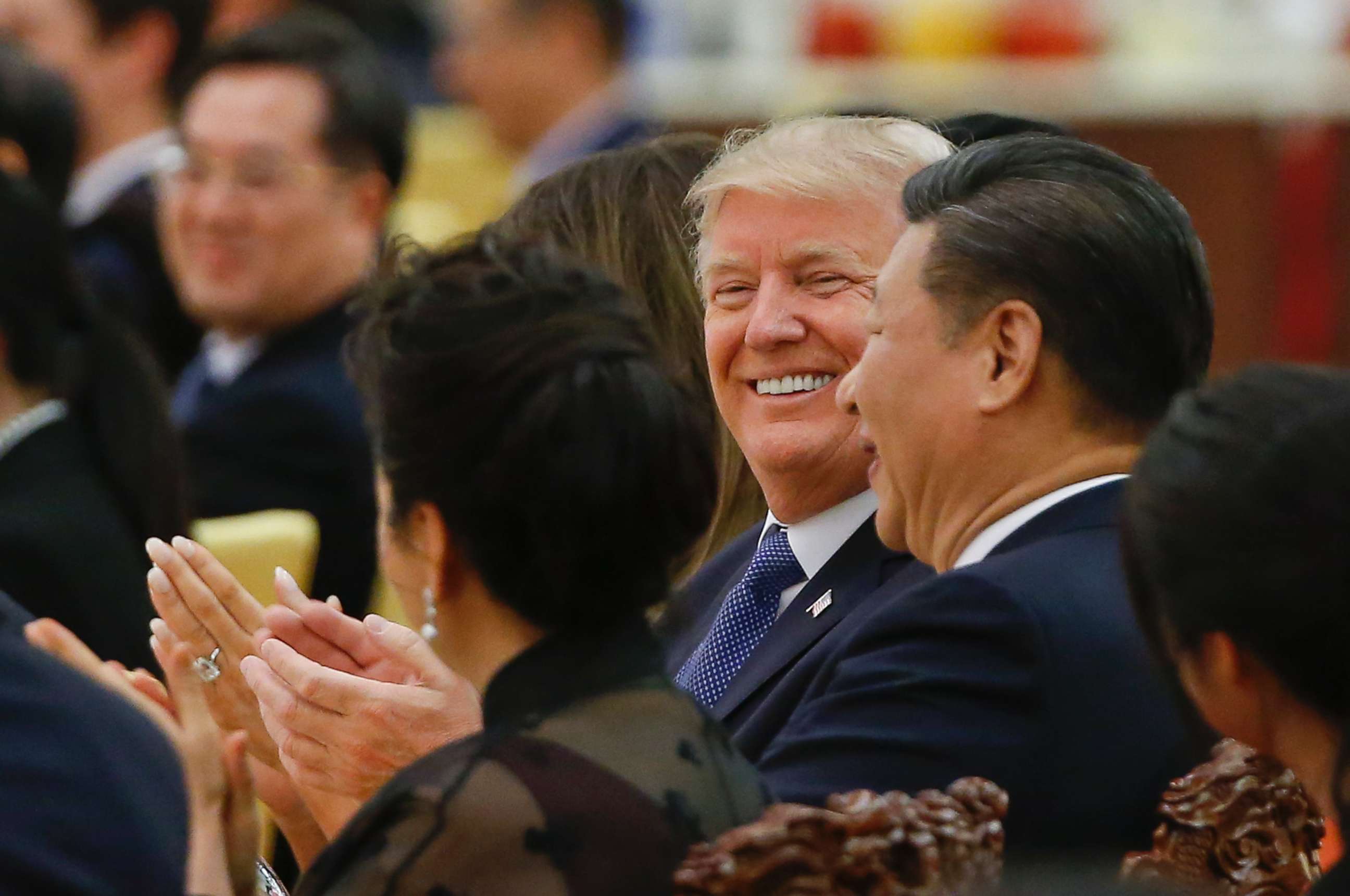ANALYSIS: A year ago Donald Trump promised to shake up the world, and shake it he did
At the end of his first year in office, many challenges remain the same.
— -- A year ago Donald Trump promised to shake up the world, and shake it he did.
There was a series of unforgettable encounters with foreign leaders: knuckle crushing handshakes with Japan’s Shinzo Abe and France’s Emmanuel Macron, the sword dance in Saudi Arabia, that moment in Brussels when he barged through a crowd of NATO leaders, the Oval office photo op when he gave the cold shoulder for Germany’s Angela Merkel, the surprising warmth of his Mar-a-Lago summit with China’s Xi Jinping.
Every interaction was loaded with meaning – none more so than his handshake with Russian President Vladimir Putin at the G20 – both men keeping a diplomatic distance with the cloud of the collusion investigation forcing Trump to keep his desire for closer relations with the Kremlin in check.

Trump's words, spoken and tweeted, were deeply unsettling - everything from threatening to rain “fire and fury” on North Korea to that out-of-left-field suggestion the the United States take military action against Venezuela.
By October the accumulated weight of Trump’s disruptive style and statements caused Senate Foreign Relations Chairman Bob Corker to publicly state what many Republicans privately believed- that Trump’s national security team are what separates “our country from chaos.”
A new survey of world opinions by Gallup this week suggests that Trump’s presidency has damaged America’s standing in the world. Approval of U.S. leadership in the world across is just 30 percent, according to Gallup, a new low and 18 points lower than the 48 percent approval rating of the Obama Administration.
Still, appearances can also deceive.
There’s little Trump has done that any other Republican president would not have - unleashing the military to hunt and kill ISIS, threatening to tear up the Iran nuclear deal, maintaining America’s military presence in Afghanistan, siding with Israel, ditching the Trans Pacific Partnership and Paris Climate Accords - all positions other Republican presidents would likely have taken.

And at the end of his first year in office, the challenges remain the same as they were when he took office: how to slow and stop North Korea’s steady progression towards achieving a nuclear-tipped missile capable of striking the United States; how to manage Russia’s relentless pressure in Europe and in cyberspace; and how to combat China’s growing economic and political power.
As the president begins his second year, the administration’s priorities were laid out by Defense Secretary James Mattis in the National Defense Strategy unveiled Friday.
"Inter-state strategic competition, not terrorism, is now the primary concern in U.S. national security," the document read. “Long-term strategic competitions with China and Russia are the principal priorities for the Department."
This week China’s communist party ‘People’s Daily’ published a front page declaration of how China sees it’s role in the world in 2018 and beyond. Declaring that the world is facing a “democratic deficit,” the manifesto declared that “the world needs China,” and that the vacuum of leadership “creates broad strategic room for our efforts to uphold peace and development and gain an advantage.”
That “broad strategic room,” a direct result of a president who set out to distance America from the world, and succeeded.
This story is part of a weeklong series examining the first year of the Trump administration.




